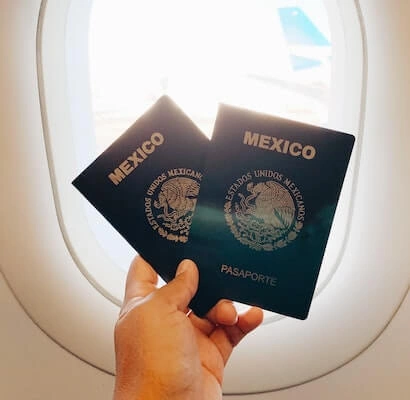- Residency or citizenship in a desirable country
- Global mobility and visa-free travel (depending on the country)
- Access to new markets and business opportunities
- Potential tax benefits
- High-quality healthcare and education systems
- Path to permanent residency or citizenship
- +91 8879307395
- Info@atsolvisa.com

Menu

investment Visa: Your Gateway to Global Business Opportunities
In today’s interconnected world, many countries offer investment visa programs to attract foreign capital and stimulate economic growth. These programs provide a unique opportunity for investors to gain residency or citizenship in exchange for significant financial investments. This comprehensive guide will walk you through the concept of investment visas, their benefits, and the general process of obtaining one.
Understanding Investment Visas
Investment visas, also known as golden visas or investor visas, are immigration programs that allow individuals to obtain residency or citizenship in a foreign country by making a substantial investment in that country’s economy. These investments can take various forms, including:
Visa Process
86%
- Real estate purchases
- Government bonds
- Business investments
- Job creation initiatives
Benefits of Investment Visas
Popular Investment Visa Programs
While many countries offer investment visa programs, some of the most popular include:
- United States EB-5 Visa
- Portugal Golden Visa
- Malta Individual Investor Programme
- Caribbean Citizenship by Investment Programs
- Greece Golden Visa
- Spain Golden Visa
- Cyprus Investment Programme
General Steps to Obtain an Investment Visa
While specific requirements vary by country, here’s a general roadmap for obtaining an investment visa:
- Research and Choose a Program
– Evaluate different countries’ programs
– Consider investment amounts, residency requirements, and benefits
- Engage Professional Help
– Consult with immigration lawyers and financial advisors
– Ensure compliance with both home and host country regulations
- Gather Required Documents
– Passport copies
– Birth certificates
– Marriage certificates (if applicable)
– Police clearance certificates
– Proof of funds
– Business documents (if applicable)
- Make the Investment
– Choose the investment option (e.g., real estate, business investment)
– Transfer funds through approved channels
- Submit Application
– Complete all necessary forms
– Provide supporting documents
– Pay application fees
- Due Diligence Process
– Undergo background checks
– Verify source of funds
- Approval and Issuance of Visa/Residency Permit
– Receive decision on application
– If approved, obtain visa or residency permit
- Fulfill Residency Requirements
– Maintain investment for required period
– Comply with minimum stay requirements (if any)
Financial Requirements and Fees
Investment amounts and fees vary significantly between programs. Here are some examples:
- US EB-5 Visa:
– Investment: $900,000 – $1.8 million
– Application fee: $3,675
- Portugal Golden Visa:
– Investment: €280,000 – €500,000 (depending on the option)
– Application fee: Approximately €5,325 for main applicant
- Greece Golden Visa:
– Investment: €250,000 in real estate
– Application fee: €2,000 for main applicant
Note: These amounts are subject to change. Always verify current requirements with official sources.
Proof of Funds
Most investment visa programs require applicants to demonstrate the legitimacy of their funds. This typically involves:
- Bank statements for the past 6-12 months
- Investment portfolio statements
- Business financial statements
- Tax returns
- Proof of sale of assets (if applicable)
- Affidavits explaining source of funds
Dependents
Many investment visa programs allow investors to include family members in their application. This usually covers:
- Spouse or legal partner
- Dependent children (typically under 18 or 21, depending on the program)
- In some cases, dependent parents
Additional fees and documentation are usually required for each dependent.
Due Diligence and Risks
- Thoroughly research programs and seek professional advice
- Be aware of minimum investment holding periods
- Understand residency requirements and tax implications
- Consider political and economic stability of the host country
- Be prepared for rigorous due diligence processes
Tips for a Successful Investment Visa Application
- Start the process well in advance
- Ensure all documents are properly translated and notarized
- Be transparent about the source of funds
- Consider visiting the country before making the investment
- Stay informed about any program changes or updates
Frequently Asked Questions
- Can I apply for multiple investment visa programs simultaneously?
- How long does the application process typically take?
- Can I recover my investment if I decide to leave the country?
- Do I need to speak the local language to obtain an investment visa?
- Can I run my business from my home country while holding an investment visa?
Conclusion:
Investment visas offer a unique pathway to global mobility and new business opportunities. While the process can be complex and the financial commitment significant, the potential benefits in terms of lifestyle, business expansion, and global access can be substantial. Always conduct thorough research and seek professional advice to ensure the chosen program aligns with your long-term goals and financial situation.
Ready to explore investment visa opportunities? Contact our expert consultants today for personalized guidance on choosing and applying for the right investment visa program for you!


Search Here
Gallery


